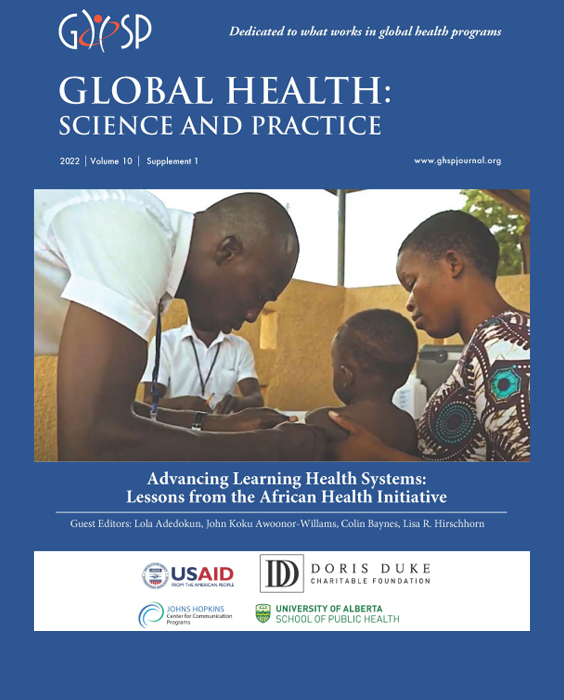Three Components for Success
Supporting Local Ownership of Solutions
No one better understands the challenges to a community or the context necessary to address them than the people who live there. They play a pivotal role in making ideas applicable and improvements sustainable.
That is why local voices take center stage in each of the programs the African Health Initiative funds. Supported as the primary owners of the solutions, government leaders at the national, regional and community level take the lead in these programs and their outcomes so that improvements to the general system result in effects that long outlast our funding. These leaders directly engage the communities they serve to localize efforts to improve health, using approaches built with the context of the specific places and people in mind.
To see this concept brought to life, view our video about the Community Health-Based Planning and Services project (CHPS+) in Ghana, an effort in concert with Columbia University Mailman School of Public Health and Ghana Ministry of Health.
Enabling Learning Systems
When lives are at stake, research often needs to be applied in real time. A system that is always learning from and refining itself in a timely way is better able to respond quickly to both expected and unexpected population health issues. The African Health Initiative’s second phase is intended to support health system leaders to be as responsive as possible to obstacles within their health systems by equipping them with the data and research needed to solve problems and improve service delivery. African Health Initiative grantees also regularly convene to discuss their successes and challenges. Through this exchange, they not only learn from one another and improve their own programs, but collaborate to share collective lessons with the field of public health—contributing to greater progress across the continent and beyond.
To learn more, watch our video about how we are working with Health Alliance International, University of Washington and Mozambique Ministry of Health to make research central to service delivery and about the ways data is driving important decision making in Mozambique.
Building Partnership-Based Philanthropy
Every African Health Initiative grantee program is built on a three-pronged partnership between national African government health ministries, U.S. and African universities, and global funding organizations. This collaborative approach allows the players to elevate the effectiveness of each other’s work toward the same end goals.
Each partner plays a special and complementary role. Local governments are the experts on their country’s own norms and cultural practices and are best positioned to carry the leadership of local service delivery as their population evolves. University and research institutions are critical for testing existing and new methods of implementing health care solutions. Global funders play a key role in supporting health systems in their earliest stages of development as they continue to grow more effective and self-reliant.
Watch our video to hear Lola Adedokun, Director of DDF's African Health Initiative, along with our colleagues at the USAID Office of Maternal and Child Health and Nutrition, Korea International Cooperation Agency, and the World Bank Global Financing Facility for Women, Children and Adolescents talk about their partnership to accelerate the impact of each other’s work.






